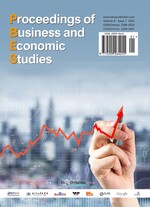Abstract
In recent years, managing rural living environments has become a vital component of the rural revitalization strategy. Jiangsu Province, rich in economic and cultural resources, has accumulated valuable experience in exploring rural environmental governance by integrating culture and tourism. This research analyzes the practical logic of rural environmental governance in Jiangsu from both theoretical and practical perspectives. It emphasizes the importance of integrating culture and tourism to enhance environmental governance while addressing the associated challenges. The results show that the integration of culture and tourism not only enhances rural ecological environments and living facilities but also boosts regional economic development and the preservation of cultural resources. Nevertheless, there are still challenges in aspects such as the collaboration of stakeholders, the establishment of long-term mechanisms, and the application of digital technologies. Based on real cases in Jiangsu, this study suggests optimization strategies and policy recommendations to improve rural environmental governance within the framework of cultural and tourism integration.
References
Rau S, 2021, Bridge to Future Livable Cities and City Clusters in the People’s Republic of China: Policy Opportunities for High-Quality Urban Development. ABD East Asia Working Paper Series, 40: 1–83.
Wu Y, Cao L, 2023, The Construction of a Coordinated Integration System of Rural Tourism and Habitat Environment in China Based on Coupled Coordination Degree Model. Applied Mathematics and Nonlinear Sciences, 8(3): 456–472.
Westerink J, Jongeneel R, Polman N, 2017, Collaborative Governance Arrangements to Deliver Spatially Coordinated Agri-Environmental Management. Journal of Environmental Planning and Management, 60(5): 791–808.
Shen D, 2023, Spatial Reconstruction: Practical Logic and Optimization Path of Rural Living Environment Governance under the Background of Rural Revitalization. Exploration, 39(3): 45–53.
Gu W, 2021, A Multi-Case Analysis of Cultural and Tourism Integration Development in Jiangsu. Business Exhibition Economy, 19(8): 56–61.
Han B, Bi M, Huang L, 2020, Research on the Organic Combination of Rural Tourism Development and Rural Living Environment Governance Based on the Concept of Cultural Expression. Farmers’ Counsel, 14(4): 78–83.
Xi C, Xing L, 2023, How Does Digital Governance Affect the Level of Domestic Waste Separation for Rural Residents? Empirical Evidence from Rural Areas in Jiangsu Province. Frontiers in Public Health, 10: 1048721.
Gao RW, Dong H, 2023, Social Foundation and Practical Logic of Digital Empowerment in Rural Living Environment Governance. Journal of Northwest A&F University (Social Science Edition), 43(6): 110–118.
Li Y, Huang Z, 2022, Research on the Long-Term Governance Mechanism of Urban and Rural Living Environment Based on the Ordered Logistic-ISM Model in the Perspective of Sustainable Development. International Journal of Environmental Research and Public Health, 19(4): 3421.
